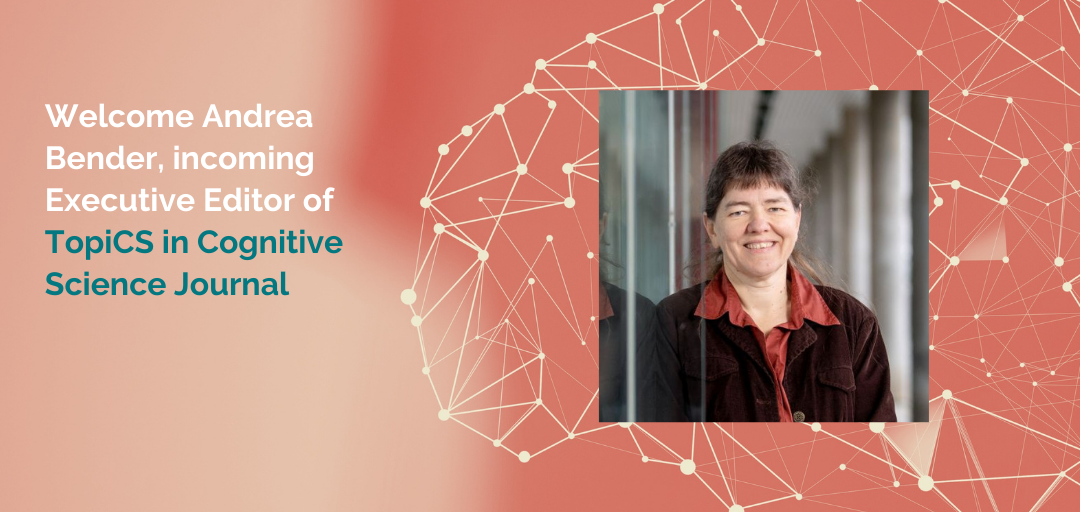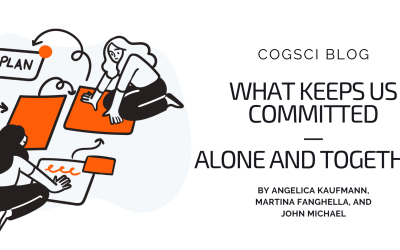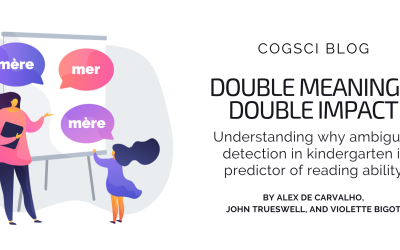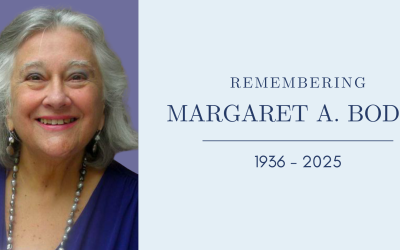A scientific marketplace
Imagine you have invited a friend to a home-made dinner and are out shopping for food. Presumably, you would go to a grocery store or, if within reach, a farmers’ market, where you know you can get what you need in good quality and sufficient variety. Even if you have decided in advance what you are going to purchase, you would presumably enjoy the richness and diversity of the products, and the prospect of discovering something new that might pique your curiosity or even inspire you to change your menu.
This is my view of topiCS and my vision of its future: a journal that, in one issue, can span all levels of explanation relevant for cognitive science (Colombo & Knauff, 2020) and zoom in on an in-depth investigation of one phenomenon through the lens of a single case study (Prakken, Bex, & Mackor, 2020); a journal that, with the Rumelhart Prize recipients, honors the champions in our field as readily as it engages in discussions of this field’s very identity and the premises on which it is built (Gray, 2019; Núñez et al., 2020); a journal that offers comprehensive reviews and updates on classical topics (e.g., Bolognesi & Steen, 2018) as well as trails into uncharted territory (e.g., Munnich, Foster, & Keane, 2019)—the solid stuff you anticipate to find is here, and so is the unexpected that might excite you to try something new.
Beginning with this issue, I am taking over the responsibilities of Executive Editor of topiCS from Wayne Gray. In his almost 15 years of service, Wayne has done an outstanding job in launching, establishing, and developing the journal. He will always remain the founding father of topiCS, and for me a role model of how to steer a young journal through turbulent waters. Following in his footsteps, maintaining the high standards of topiCS, and consolidating its uniqueness are daunting tasks. In addition, Wiley has started implementing major changes to the layout of our two cognitive science journals, just about when the editorial transitions were due. And yet, in many ways, the transition from Wayne to me will be a smooth one. I am not new to topiCS: Prior to my appointment, I gained experience in all the roles there are, from enthusiastic reader to author of contributions, from acting editor for special issues to member of the Senior Editorial Board. In this day and age, in which the restoration of the old order, from politics to global health, comes across as progress, I feel encouraged to preserve all that I love about topiCS. Moreover, in several issues to come, I will have the honor to reap the rewards of Wayne’s efforts, by introducing topics he recruited. And I will have Caroline Verdier at my side, the highly proficient and extremely adept journal manager without whom this task would be so much more daunting.
If there is one distinct mark I hope to leave, it will be nurturing diversity: in terms of disciplines, of authors, of topics and perspectives, and of formats.
Diversity has always intrigued me. It was what initially pulled me into anthropology and eventually fanned my interest in evolution; it was what widened my focus to (other) cognitive science(s), and got me hooked on CogSci, the annual conference of the Cognitive Science Society; it was what kept me making a case for rapprochement of smaller disciplines with the mainstream; and it tipped the scales when I considered applying for this position. My first CogSci in Vancouver, at that time merely as the companion of a true participant, became an eye-opener: what a brimming marketplace of ideas and insights, approaches and theories, what a unique opportunity to discover new horizons! As so elegantly put by Doug Medin,
“It is difficult to recapture the excitement of the first Cognitive Science Society meeting, but it was palpable. Each of the subdisciplines associated with cognitive science was well represented. It was like going to an exotic marketplace and sampling an intriguing variety of wares. That there was not a common language only added to the interest and desire for commerce.” (Bender, Hutchins, & Medin, 2010, p. 374)
By all accounts, my first CogSci was less opulent than that first CogSci—a fact that has been a matter of increasing concern for quite a while now (e.g., Gentner, 2019; Núñez et al., 2019)—and yet still opulent enough to captivate me. Except for when I had to bid farewell to the one who had once introduced me to it, I have not missed a single conference. For me, this marketplace atmosphere has remained the greatest appeal of both the CogSci meetings and the journal topiCS (Bender, 2019). In order to preserve and enhance this appeal, the principal action required is keeping a wide variety of goods on offer.
To be clear, diversity—like relevance and quality—was a goal of topiCS from the very start, but it has prospered less than have relevance and quality, despite sizable efforts from every editorial board over the years. Diversity, it turned out, would not blossom and thrive on its own, but needed a helping hand.
In addition to previous and still valid policies, we have therefore implemented additional provisions and incentives. One is to increase the size of the Senior Editorial Board and the diversity of its composition to better reflect the diversity of the field. With a more diverse Senior Editorial Board in place, we hope not only to ensure a greater variety of perspectives, but also to be able to reach out to a greater variety of scientific disciplines and research communities when seeking to receive or recruit proposals. To increase incentives for diversity, we have also launched an award for CogSci symposia turned into topiCS special issues if they highlight exciting cognitive research in disciplines that have been traditionally underrepresented (see textbox for details). And finally, we will try to capitalize on the available diversity in formats that, besides the classical special issues, also include spotlights on new and emerging research fields, individual position papers combined with commentaries, great debates on controversial questions, or visions of the field at large.
Disciplinary Diversity & Integration Award in Cognitive Science
The Cognitive Science Society and topiCS launch a new conference prize to highlight exciting cognitive research in disciplines that have been traditionally underrepresented at our annual conferences and journals. Eligible submissions include original work, novel interdisciplinary perspectives, and integrative approaches to understanding the human mind.
The prize is open to researchers at any level (student to faculty) and may be awarded to full papers and/or organized symposia that indicate their eligibility on submission.The prize for full papers comprises a cash award of US$ 1,000. The prize for symposia includes complimentary member registration for the conference for both the organizer and each of those presenting in the symposium, and an additional cash award of US$ 1,000 for the organizer of the symposium if the symposium is turned into a (successful) proposal to topiCS.
Let me address a potential concern with focusing too much on topic diversity upfront. Whereas relevance and quality inarguably are noncontroversial hallmarks of excellent journals, diversity might be perceived as having the potential to generate trade-offs: one with respect to relevance, and a second with respect to quality.
A cognitive science journal like topiCS needs to be appealing to its target audience, cognitive scientists. Too strong an emphasis on diversity—a fraying of its core by refocusing on the fringes, outsider interests, and exotic subfields—runs the risk of weakening its relevance for this audience. As someone inherently curious and pulled in by novel prospects, I might at times be carried away too easily with diversity. My Senior Editorial Board will safeguard the journal against this risk and help it keep the balance between what is interesting to our main readership and what could be exciting new avenues, considering the full diversity of its disciplines. While I firmly believe that cognitive science as a field will benefit from grappling with alternative approaches and from bold integration across perspectives, we will make sure that all topics that are not mainstream do carve out their relevance for cognitive science.
That diversity might be perceived as an issue for quality is a perhaps less obvious concern, but one to be taken seriously, nonetheless. Just for the record: There will be no compromise made between diversity and quality. Contributions from whichever field will have to meet the high standards we expect from all publications in our flagship journals. Still, as we succeed in increasing diversity, we will see further diversification in methodological approaches. As a consequence, I expect passionate discussions to arise around methodological plurality in cognitive science—and, who knows, perhaps someone will take the bait and initiate a great debate on the pros and cons of this plurality? In such a case, topiCS would, by all means, be the perfect place for hosting that debate.
My fundamental conviction is that cognitive science thrives on the diversity of its (sub-)disciplines, and that topiCS is the ideal journal for bringing this diversity to bear (Bender, 2019). To sustain its inviting and integrative power, we aim to meet your needs and pique your curiosity: present and represent the field you know and love, but also open up windows, showcase unfamiliar fields in our immediate vicinity, anticipate future developments, perhaps even revolutions. At least, this is what we wish to offer, this is what I hope to accomplish as Executive Editor. But shaping a journal and filling it with enthralling content is teamwork, not only among the editorial board but also, and crucially so, involving those who suggest topics and submit manuscripts. Our vision can only be realized if you share it, if you spring into action and submit proposals. This is your chance to attract attention for your line of research and to help move the field forward. So, if you have an idea, get in touch!
https://onlinelibrary.wiley.com/page/journal/17568765/homepage/forauthors.html
References
- Bender, A. (2019). The value of diversity in cognitive science. Topics in Cognitive Science, 11, 853–863.
- Bender, A., Hutchins, E., & Medin, D. L. (2010). Anthropology in cognitive science. Topics in Cognitive Science, 2, 374–385.
- Bolognesi, M., & Steen, G. (2018). Editors’ introduction: Abstract concepts: Structure, processing, and modeling. Topics in Cognitive Science, 10, 490–500.
- Colombo, M., & Knauff, M. (2020). Editors’ review and introduction: Levels of explanation in cognitive science: From molecules to culture. Topics in Cognitive Science, 12, 1224–1240.
- Gentner, D. (2019). Cognitive science is and should be pluralistic. Topics in Cognitive Science, 11, 884–891.
- Gray, W. (2019). Welcome to Cognitive Science: The once and future multidisciplinary society. Topics in Cognitive Science, 11, 838–844.
- Munnich, E. L., Foster, M. I., & Keane, M. T. (2019). Editors’ introduction and review: An appraisal of surprise: Tracing the threads that stitch it together. Topics in Cognitive Science, 11, 37–49.
- Núñez, R., Allen, M., Gao, R., Miller Rigoli, C., Relaford-Doyle, J., & Semenuks, A. (2020). For the sciences they are a-changin’: A response to commentaries on Núñez et al.’s (2019) “What happened to cognitive science?” Topics in Cognitive Science, 12, 790–803.
- Núñez, R., Allen, M., Gao, R., Rigoli, C. M., Relaford-Doyle, J., & Semenuks, A. (2019). What happened to cognitive science? Nature Human Behaviour, 3, 782–791.
- Prakken, H., Bex, F., & Mackor, A. R. (2020). Editors’ review and introduction: Models of rational proof in criminal law. Topics in Cognitive Science, 12, 1053–1067.



